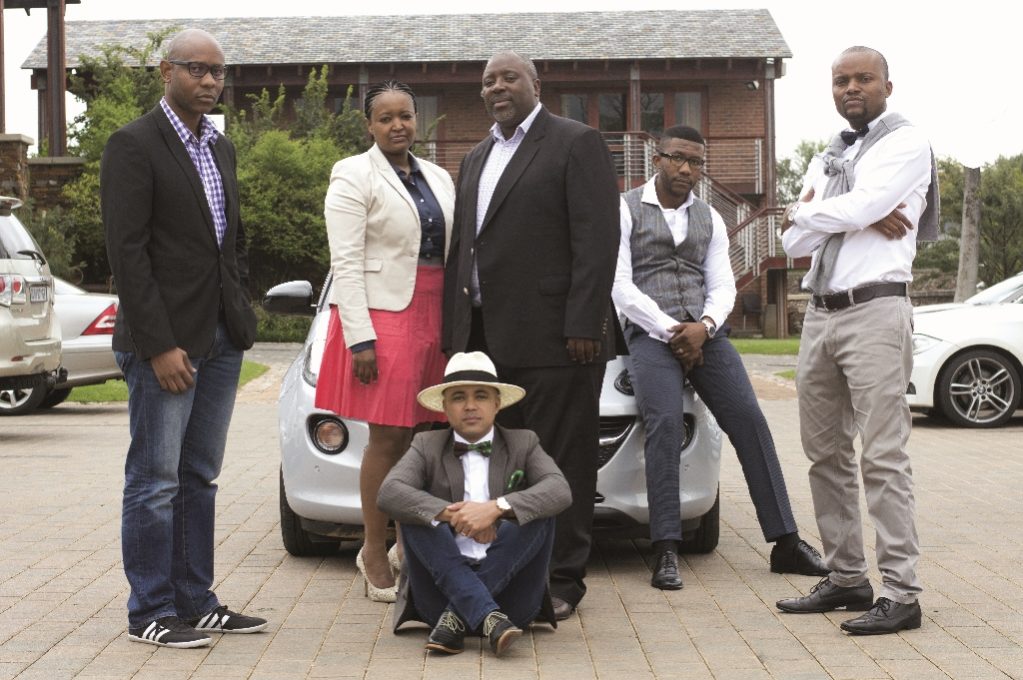It’s a mixed bag of black investors; a former civil servant, an engineer, an IT specialist and a car leaser. They are united in taking the risk of bringing the craze of pay-as-you-drive car rentals to Africa. Their company, Locomute Shared Mobility, has sunk $3.4 million into it.
In June, Locomute will have 50 vehicles running on the road in Johannesburg; in three months, Cape Town and Durban will follow.
Sibusiso Xaba, the chairman, is guiding a group of young, black entrepreneurs in their thirties. For more than a decade, Xaba was a civil servant and director general in the Department of Arts and Culture. In January, in his forties, he took the leap as an entrepreneur.
“For every car that is shared, 15 people won’t necessarily have to buy a car. The convenience our service gives to the customers makes it outstanding compared to our competitors. It gets rid of debt capital, no e-tolls, no maintenance costs, you pay as you drive,” says Xaba.
In the competitive world of car rental, Kuthula Mkhize, the general manager, says it’s mainly for business types and visitors.
“Our target market is the executive person who flies into OR Tambo International from Durban and uses the car while in Johannesburg for the meeting and comes back to airport,” says Mkhize, who worked in the car rental business for eight years.
Technology is key. Before you can use Locomute cars you register on the internet or using a cell phone application for a few dollars.
“Subscribed members will reserve a car online or via the Locomute application. It’s a 24/7 access to a pool of vehicles located within designated zones called Locoparks. You only pay for the time you used the vehicle. We are responsible for the fuel, insurance and you leave the car where you desire,” says Xaba.
“This is an in-city service. You are not allowed to take the car in Johannesburg to Bloemfontein. We have technology to monitor our cars and we will immediately know what happens to each and every car in our fleet. If a car is stolen, we will be able to track it in no time,” says Mkhize.
“Before Gautrain was introduced, people drove cars to the airport, not because they wanted to but because they had no choice. Gautrain brought the service that was needed and today it is fully subscribed. So, if you give that person an option to drive our car from an office and leave it in a parking, he doesn’t have to worry about anything else,” says Xaba.
Martin Lydall, chief commercial officer for Imperial Car Rental, one of the biggest car rental companies in South Africa, says competition is good. In South Africa alone there are 60,000 rental vehicles in a business worth around $380 million, he says.
“This is probably the most competitive business in the world and South Africa is among the leading countries. We are business people and competition makes business effective. We are not concerned about the new companies. We have been competing with the small and big companies. It helps to evaluate your competitors and see where you need to improve in your own business,” says Lydall.
Derek Watts, FORBES AFRICA’s motoring correspondent, says there’s space for new players.
“We get used to the way of operations but if they establish a good name people will use their service. The transport system in South Africa changes by the day. It would be interesting to see, as long as you free people from insurance which this company is promising, then people will use the service,” says Watts.
Xaba hopes so.
